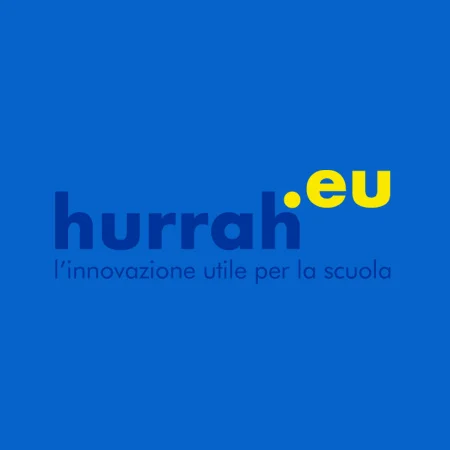- University of Algarve
- Faro
- Master e MBA

Master in Informatics Engineering
The course is also taught in Portuguese.
The Master Course in Computer Science of the Faculty of Science and Technology of the University of Algarve, based on the broadband knowledge in computer science obtained in a first degree course, offers advanced training in several areas of computer science. This way, it provides solid training suitable to the work market, also enabling the pursuit of studies at the doctoral level.
The Master has a duration of 2 years. Each year requires a learning effort equivalent to 60 ECTS, making a total of 120 ECTS. Its operating period is after 18 hours.
The Master consists of an organized set of course units, called the master's course, corresponding to 66 ECTS credits, and a scientific dissertation, a project work or a professional internship, which corresponds to the remaining 54 credits ECTS.
The Master Course consists of the following sets of course units:
Compulsory – Six course units considered essential in the advanced training of a Computer Engineer (36 ECTS). This set of courses includes a soft-skills discipline.
Optional – Five course units, for a total of 30 ECTS. These units may be chosen individually or by thematic area: Computer Science, Data Analysis and Computer Networks.
Dissertation / Project / Internship - Thesis of a scientific nature, or a project work, or a professional internship, corresponding to the remaining 54 ECTS credits.
Objectives
The main objective of the Master in Computer Science is to complement the broadband training acquired during a first degree in Computer Science, or equivalent, with advanced training in relevant areas of Computer Sciences and in other transversal areas. In particular, the Master shall:
Meet Bologna's assumptions in its various aspects, including teaching methodologies, length of study cycles, employability and student mobility;
Offer training directly related to the real needs of the employing market;
Capture the interest of the largest possible number of students of the first degree, either from the University of Algarve, or from other national and foreign universities;
Foster the interest in research activities and offer the necessary training to attend a third training cycle leading to a PhD degree.
Skills
The Profile of General Skills of the Master in Computer Science is developed along four fundamental components: (i) To Know (theoretical knowledge), (ii)To Know How to Do (technical-professional knowledge), (iii) Social Know How (Social and relational skills) and (iv) Learning how to Learn (Cognitive skills).
The Master of Computer Science of the University of Algarve promotes the development of the general skills of its students in each one of the aspects listed above. In particular:
Consolidating knowledge in Engineering Sciences and in Computer Sciences;
Providing the ability to synthesize and analyze data, develop scientific and technological experiences and solve problems using carefully the available resources, namely those associated with computer resources;
Providing the ability to communicate, oral and written, data, ideas, problems and solutions to different audiences and in particular to audiences specialized in the field of Computer Science;
Fostering the sense of responsibility and professional ethics;
Providing the ability to work as a team and adapt to technological changes through continuous and autonomous curriculum development.
The Master Holder in Computer Science has skills in:
Analysis, design and development of information systems;
Relevant programming languages paradigms;
Information systems management;
IT systems project and management;
Advanced security topics in networks and information systems;
Computer network design and management, focusing on the Internet of Things;
Extraction of relevant information from large volumes of data;
Design of intelligent systems for solving complex problems.
The course is also taught in Portuguese.
The Master Course in Computer Science of the Faculty of Science and Technology of the University of Algarve, based on the broadband knowledge in computer science obtained in a first degree course, offers advanced training in several areas of computer science. This way, it provides solid training suitable to the work market, also enabling the pursuit of studies at the doctoral level.
The Master has a duration of 2 years. Each year requires a learning effort equivalent to 60 ECTS, making a total of 120 ECTS. Its operating period is after 18 hours.
The Master consists of an organized set of course units, called the master's course, corresponding to 66 ECTS credits, and a scientific dissertation, a project work or a professional internship, which corresponds to the remaining 54 credits ECTS.
The Master Course consists of the following sets of course units:
Compulsory – Six course units considered essential in the advanced training of a Computer Engineer (36 ECTS). This set of courses includes a soft-skills discipline.
Optional – Five course units, for a total of 30 ECTS. These units may be chosen individually or by thematic area: Computer Science, Data Analysis and Computer Networks.
Dissertation / Project / Internship - Thesis of a scientific nature, or a project work, or a professional internship, corresponding to the remaining 54 ECTS credits.
Objectives
The main objective of the Master in Computer Science is to complement the broadband training acquired during a first degree in Computer Science, or equivalent, with advanced training in relevant areas of Computer Sciences and in other transversal areas. In particular, the Master shall:
Meet Bologna's assumptions in its various aspects, including teaching methodologies, length of study cycles, employability and student mobility;
Offer training directly related to the real needs of the employing market;
Capture the interest of the largest possible number of students of the first degree, either from the University of Algarve, or from other national and foreign universities;
Foster the interest in research activities and offer the necessary training to attend a third training cycle leading to a PhD degree.
Skills
The Profile of General Skills of the Master in Computer Science is developed along four fundamental components: (i) To Know (theoretical knowledge), (ii)To Know How to Do (technical-professional knowledge), (iii) Social Know How (Social and relational skills) and (iv) Learning how to Learn (Cognitive skills).
The Master of Computer Science of the University of Algarve promotes the development of the general skills of its students in each one of the aspects listed above. In particular:
Consolidating knowledge in Engineering Sciences and in Computer Sciences;
Providing the ability to synthesize and analyze data, develop scientific and technological experiences and solve problems using carefully the available resources, namely those associated with computer resources;
Providing the ability to communicate, oral and written, data, ideas, problems and solutions to different audiences and in particular to audiences specialized in the field of Computer Science;
Fostering the sense of responsibility and professional ethics;
Providing the ability to work as a team and adapt to technological changes through continuous and autonomous curriculum development.
The Master Holder in Computer Science has skills in:
Analysis, design and development of information systems;
Relevant programming languages paradigms;
Information systems management;
IT systems project and management;
Advanced security topics in networks and information systems;
Computer network design and management, focusing on the Internet of Things;
Extraction of relevant information from large volumes of data;
Design of intelligent systems for solving complex problems.

